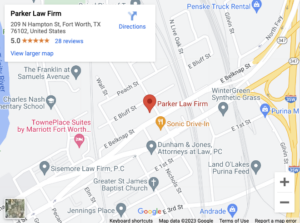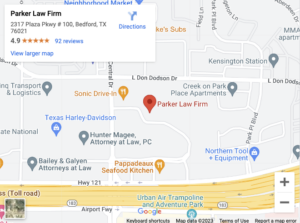
Your nervous system controls everything in your body. When you suffer nerve damage, you could experience debilitating symptoms like pain, paralysis, numbness, and weakness.
Unfortunately, nerve damage causes permanent symptoms unless doctors can perform nerve graft surgery. Without effective treatment, you may have permanent disabilities that affect the quality of your life.
What Are the Functions of Your Nervous System?
Your brain controls your body through the nervous system. The brain gathers information through the sense organs to understand its environment and what it needs to do. The brain then creates control signals and sends them to your muscles and organs through the nerves.
The central nervous system (CNS) includes your brain and spinal cord. All signals passing from your brain to your body pass through the 31 pairs of nerves in your spinal cord.
The peripheral nervous system (PNS) includes everything that connects to the CNS. Doctors typically use the term “nerve damage” to refer to peripheral nerve damage. Peripheral nerve damage, also known as peripheral neuropathy, affects structures in the PNS, including these:
Nerve Roots
A pair of nerves exits the spinal cord at each vertebra. When they exit, they branch into nerve roots. Each of your 31 pairs of nerve roots carries the nerve signals for a body area. For example, all nerve signals traveling to and from your right hand pass through a single nerve root in your neck.
Peripheral Nerves
Peripheral nerves branch out from the nerve roots. These nerves connect your nerve roots to muscles, organs, and nerve endings in the skin. Since they serve as an endpoint for your nerves, they detect sensations and create sensory signals that travel to the brain. They also power the organs or nerve muscles to which they connect.
Facial Nerves
Facial nerves do not connect to the spinal cord. Instead, they connect directly to your brain. Facial nerves pick up touch sensations from the face, scalp, and neck. They control the muscles that produce facial expressions, and they carry signals for vision, hearing, taste, and smell to the brain.
How Does Nerve Damage Occur?
Nerve cells generate a signal when they detect a neurotransmitter. In response, the nerve cell moves charged molecules called ions to its surface. The next nerve cell detects the change in electrical charge and moves its ions to its surface. The process continues in sequence along the length of the nerve.
Nerve cells must be close to each other to transmit nerve signals. When something happens to the cells, the nerve cannot carry a signal correctly. Sensory signals will not reach the brain, and control signals cannot reach the body. Worse yet, the nerves can misfire, producing symptoms in places that didn’t even get injured.
Nerve damage can happen due to health conditions or trauma. Some types of trauma that can damage your nerves include the following:
Lacerations
When a nerve gets severed, it cannot carry a signal. As a result, you will experience paralysis and total loss of sensation below the injury.
These injuries can happen in any accident involving a sharp object. Pieces of broken glass or metal from a motorcycle accident can sever the nerves when you slide across them.
Similarly, a dog bite could slice through the nerves of your hand, arm, or leg.
Traction
Traction happens when a nerve gets pulled severely. Even if it does not sever, the pulling can damage the nerve cells or pull them too far apart to communicate. Stretched nerves might drop signals continuously or intermittently.
Nerve traction can result from the forces involved in a vehicle accident or fall. It can also result from intentional assaults or medical malpractice. A common birth injury occurs when a doctor pulls a baby’s arm too hard during delivery. The force stretches the brachial plexus nerve bundle, paralyzing the baby’s arm and shoulder.
Compression
When something presses on a nerve, it gets inflamed. Inflamed nerves misfire and drop signals. Nerve compression can cause a range of symptoms depending on the location and severity of the injury.
Nerve compression usually happens when a body part dislocates or swells and presses on a nerve. Nerve compression can happen in any accident. For example, spine compression from whiplash in a car accident can herniate a spinal disc. The herniated disc can compress a nerve root.
What Are the Symptoms of Nerve Damage?
The symptoms you experience from nerve damage depend on the location of your injury and the type of nerves that get injured.
Your nerves carry three types of signals:
Autonomic Signals
Autonomic signals control involuntary responses like:
- Heartbeat
- Breathing
- Blood pressure
- Body temperature
When you suffer damage to your autonomic nerves, these systems can get disrupted. You may even lose your ability to control your bladder and bowels.
Motor Signals
Motor signals move your muscles. When your motor nerves get injured, you might experience:
- Paralysis
- Weakness
- Muscle spasms
- Loss of dexterity
Sometimes, you will recover some motor control with physical therapy. Your brain has some ability to remap itself to use undamaged nerves to control new areas. But this neuroplasticity is limited and will probably not allow you to regain all your lost functions.
Sensory Signals
Sensory nerves carry sense perceptions to your brain. Nerve damage that disrupts sensory signals can cause:
- Tingling
- Deafness
- Blindness
- Numbness
- Radiating pain
The pain produced by nerve damage may feel like it’s coming from an uninjured body part. For example, nerve root compression in your lower back could cause symptoms in your hip, leg, or foot even though you didn’t injure them.
What Types of Compensation Can You Recover for Nerve Damage?
You can pursue a personal injury claim for nerve damage that resulted from someone else’s negligence. When you prove liability, you can obtain compensation for economic damages like medical costs and lost wages and non-economic damages like pain and suffering.
When you suffer nerve damage, you could incur significant medical expenses for treatment, therapy, and medication. You will also miss time from work while you heal. You might even need to change jobs or retire. You could also experience pain, mental anguish, and disabilities.Contact Parker Law Firm Injury Lawyers for a free consultation to discuss your nerve damage and the compensation you can pursue for it.


